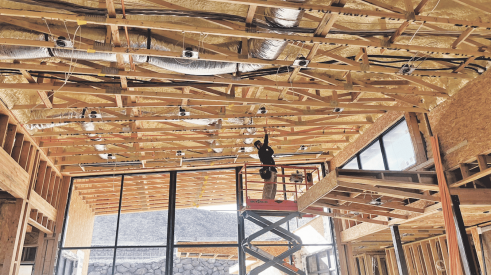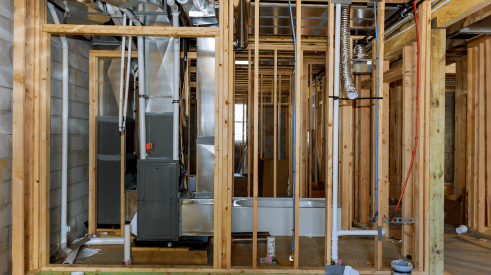A new study shows the risk of mortgage default is one-third lower for energy-efficient, Energy Star-rated homes—a factor lenders and Congress should consider when making mortgage loans and policy.
“Home Energy Efficiency and Mortgage Risks” was released by the University of North Carolina at Chapel Hill Center for Community Capital and the Institute for Market Transformation (IMT), a nonprofit organization dedicated to promoting energy efficiency. The report can be
downloaded here.
The new report is the first academic study to assess the linkages between home energy efficiency and mortgage risks. It uses a sample of 71,000 home loans from 38 states and the District of Columbia, all derived from CoreLogic’s mortgage database. The sample is restricted to single-family, owner-occupied houses whose loans originated during 2002-2012 and were used for purchase only.
About 35 percent of the houses in the sample were Energy Star-rated for efficiency, with the rest forming a control group. Controlling for other factors, the odds of a mortgage default on an Energy Star residence are one-third lower than those of a home in the control group. A mortgage holder on an Energy Star residence is also one-quarter less likely to prepay. Since lenders consider prepayment a risk, these loans are potentially more valuable to them.
“It stands to reason that energy-efficient homes should have a lower default rate, because the owners of these homes save money on their utility bills, and they can put that money toward their mortgage payments,” said Cliff Majersik, executive director of IMT. “We long believed this to be the case, and now this study proves it. Successful housing market reforms will require reconsidering the risk factors in mortgage default, including energy costs.”
The authors recommend that Congress consider the study findings in its deliberation of current and proposed legislation to improve the accuracy of mortgage underwriting. They also conclude that lenders may want to require an energy audit or rating as part of the mortgage underwriting process, and that federal housing agencies could promote underwriting flexibility for mortgages on energy-efficient homes.
American households spend around $230 billion each year on energy, not including transportation, and the residential sector accounts for 20 percent of the total energy consumed in the United States. Energy efficiency in the residential sector has a potential to save $41 billion annually, according to research by McKinsey & Company.
“Consumer and industry acceptance of energy efficiency is high. But the lack of broad consideration of potential energy savings in the mortgage underwriting process still prevents many moderate- and middle-income homebuyers from fully enjoying the cost savings,” said Roberto G. Quercia, the center’s director and one of the authors of the study. “Since our study findings now show that energy efficiency is strongly and consistently associated with lower mortgage lending risk, lenders and policymakers have one more reason to promote it.”
Quercia is also a professor in the city and regional planning department in the College of Arts and Sciences and a faculty fellow at the Center for Urban and Regional Studies. The study’s other authors are Nikhil Kaza, research fellow at the UNC Center for Community Capital, assistant professor in the city and regional planning department and adjunct assistant professor in the environment and ecology department, and Chao Yue Tian, research associate at the UNC Center for Community Capital.







